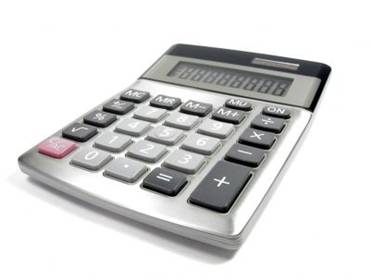 Consolidating your debts can sound like the perfect solution to your financial situation. There are a number of reasons why debt consolidation can be a good idea, however you should be aware of the downsides also. In this article we take a deep dive into the pros and cons of debt consolidation.
Consolidating your debts can sound like the perfect solution to your financial situation. There are a number of reasons why debt consolidation can be a good idea, however you should be aware of the downsides also. In this article we take a deep dive into the pros and cons of debt consolidation.
What is debt consolidation?
Debt consolidation is when you group together a number of debts into one loan. This usually results in lower, more affordable repayments over a longer period of time.
How Do You Consolidate Your Debts?
Debt consolidation is a form of refinancing. You consolidate two or more smaller debts into one larger debt.
Once you have consolidated your debts you usually owe the same amount of money but the amount that you need to repay each month and/or the length of time that it will take to repay those debts will be different. There are a number of ways that you can consolidate your debts.
If you have a number of credit cards and store cards, you can combine those by transferring the balances from each of your cards to one single card. It is quite common for people to do this, particularly given that many credit card companies often offer incentives to encourage people to transfer other card balances to them, including interest free periods.
You could also take out a bank loan or release some of the equity in your home by remortgaging and using the money raised that way to repay your existing debts. When you borrow money to repay your existing debts the new loan is called a consolidation loan.
 Debt Consolidation: An Example
Debt Consolidation: An Example
Let’s say you have the following debts:
- Overdraft, outstanding balance £500
- Store card, outstanding balance £500
- Second store card, outstanding balance £1,000
- Credit card, outstanding balance £2,500
- Car loan, outstanding balance £5,500
You could take out a bank loan or second mortgage on your home (if there is sufficient equity available) for £10,000 and use that money to clear all of these debts, leaving you with one single repayment to make each month.
Why Do People Consider Debt Consolidation?
There are four main reasons to consolidate your debts.
- Debt consolidation simplifies your household accounts because it means that you have fewer outgoing payments to make each month.
- Debt consolidation can make your total monthly repayments cheaper. It is important to note that this doesn’t necessarily mean that you will end up paying less to clear those debts, and in some situations you can end up paying more.
- Consolidating your debts can mean that you end up paying a lower interest rate. Store cards and credit cards tend to have a fairly high interest rate, whereas the interest rate on a bank loan or a mortgage could well be lower.
- You can fix the interest rate on your consolidation loan. This means that you know exactly how much you will be paying each month.
When Should You Consider Debt Consolidation?
Most people start thinking about debt consolidation when they realise that they are struggling to afford their monthly debt repayments, but it is often too late at that point because the refinancing options will be limited.
Lenders will be reluctant to lend money to someone who is already experiencing problems repaying their existing debts. Those lenders that are prepared to offer a loan will want a higher interest rate than they would have offered to someone with a better credit rating.
If you are thinking about debt consolidation, the earlier you start to do something about it, the better. If you’ve got to the point where your financial situation means that your options to consolidate your debts are limited an alternative route might be more suitable.
 The Downsides to Debt Consolidation
The Downsides to Debt Consolidation
Debt consolidation is a great way to make your debt repayments more manageable, but there are some downsides that you should consider.
First, a lot of people consolidate their debts via a mortgage. These consolidation loans are often referred to as homeowner loans.
The big difference between homeowner loans and other forms of lending such as bank loans, store cards and credit cards is the fact that homeowner loans are secured loans. If you do not keep up the repayments on a secured loan you risk losing your home. It may be worth taking advice before considering such a loan.
Second, if you are remortgaging to clear your debts there may be fees involved. If the amount that you are attempting to refinance is relatively small, this can add a meaningful amount in percentage terms to the amount that you will have to repay.
Third, although you may end up paying less each month if you consolidate your debts, you might end up paying more in total because you may be making repayments for longer which means that you will be paying more interest over the life of the loan. This is particularly the case if you consolidate your debts via a mortgage.
It is also important to check whether any early repayment penalties apply to your existing debts. You can usually clear store cards, credit cards and overdrafts whenever you like without having to pay a penalty, but some bank loans will have a condition that stipulates that if you repay the loan early you will have to pay a penalty charge.
Finally, although a consolidation loan will generally work out cheaper each month than your existing debts, it is important to check that those repayments are affordable. If you cannot meet the consolidation loan repayments you are simply delaying the inevitable and you would be better off tackling your debts via an alternative method.
 Debt Consolidation vs Debt Management Plans
Debt Consolidation vs Debt Management Plans
Debt consolidation and debt management plans are similar in the sense that you are replacing multiple monthly debt repayments with one single monthly repayments.
One advantage of a debt management plan is the fact that your lenders will often agree to freeze the interest on the outstanding debt and may even agree to write off some of that debt, whereas interest will still be payable if you refinance via debt consolidation and none of the debt will be written off.
However, whereas a debt management plan will affect your credit rating, debt consolidation won’t. In fact, your existing lenders don’t need to know that you’ve used a consolidation loan to repay them. Actually, refinancing via debt consolidation can improve your credit rating, particularly in the medium- to long-term.
Debt management plans tend to be used by people who are in serious financial difficulty, whereas debt consolidation tends to be used by people who aren’t in such a serious situation and just need to find a way to manage their finances slightly better.
 So You’ve Decided Debt Consolidation Is The Way Forward: What Next?
So You’ve Decided Debt Consolidation Is The Way Forward: What Next?
First, you should decide how you will be refinancing. This might be by transferring your existing store card and credit card balances to a new credit card. Alternatively, you might prefer to use a bank loan or a mortgage which would mean repaying your debts over a fixed term. It may be worth speaking to a financial adviser to see what choices are available to you.
Once you have refinanced your debts you should cancel your previous credit facilities. Sadly, many people who consolidate their debts via a consolidation loan find themselves in financial trouble shortly afterwards. This is because having cleared their credit and store cards they start spending on them again, meaning that they end up with even more debt than they had before.
From there, make sure that you keep up the repayments. Taking out a consolidation loan won’t damage your credit rating, but if you fail to make the repayments each month, that will.
Bear in mind that if you receive an unexpected windfall it may be possible to make a partial repayment towards your consolidation loan or even to clear it completely. But also bear in mind that if your circumstances change and you are no longer able to make the monthly repayments it’s important that you discuss your situation with your lender.
 Conclusion
Conclusion
Debt consolidation can be a good way for some people to manage their finances. Having fewer outgoings each month makes it easier to budget and debt consolidation can mean that your monthly repayments are more affordable even if that means you will end up paying more overall.
There are some risks. If your consolidation loan is a secured loan that means that your home is at risk. If you do not cancel your existing store cards and credit cards there will be a temptation to use them again and you will find yourself back in the same position very quickly.
It’s also important to check the fine print before making your decision. Sometimes fees and charges can mean that refinancing via a consolidation loan isn’t cost-effective. Depending on your financial situation there may be other more suitable methods to manage your debts so it is worth taking advice.
Having said that, if you have a reasonable credit rating and you’re looking to make your monthly debt repayments more manageable, a consolidation loan can be a good way to get your finances back on track before your financial situation becomes problematic.

You must log in to post a comment.